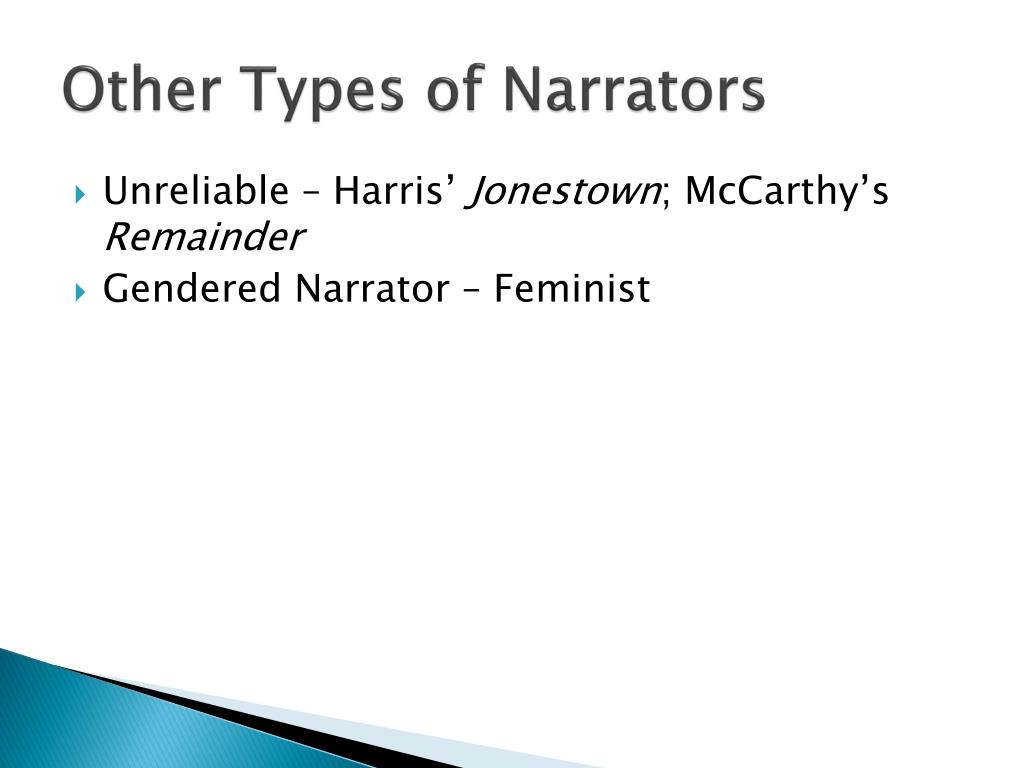

The third-person, subjective, global narrator can offer different perspectives of a story, and in this way, be almost as reliable as an omniscient narrator.

What he can tell about the remaining characters is subjective and based on conjectures. Unlike the omniscient narrator who knows everything about the story, the third-person subjective narrator is only sure about what is related to his chosen character.

He/she explains one part and suggests the rest. Therefore, he doesn’t know what the rest of the characters are thinking about or what their motivations are. He/she has a limited perspective.Īs stated above, this narrator’s point of view is restricted to one character at a time. In order to know whether a third-person subjective narrator is the best choice for the story you want to tell, here’s a list of the main features of this type of narrator: 1. He can analyze the same event from multiple sides this way. This type of narrator appears in every chapter of the book, and each time he appears, he adopts a different character’s point of view. Martin’s A Game of Thrones which is the first novel in the A Song of Ice and Fire series.
Third person narrator definition literature how to#
A clear lesson on how to use a third-person, subjective, global narrator is in George R. This type of narrator’s perception of reality can be one of two types: simple (he can only take one character’s point of view) or global (he can change his point of view from chapter to chapter or even from scene to scene). Nevertheless, the third-person subjective narrator will always be wiser than a first-person narrator as he can describe his chosen hero from both inside and outside perspectives. He’ll have insight into what a character is thinking or feeling, but he will only have a superficial knowledge of the other characters. This type of narrator may be confused with the omniscient narrator, but the difference between them is the third-person subjective narrator adopts the point of view of one of the characters of the story.


 0 kommentar(er)
0 kommentar(er)
